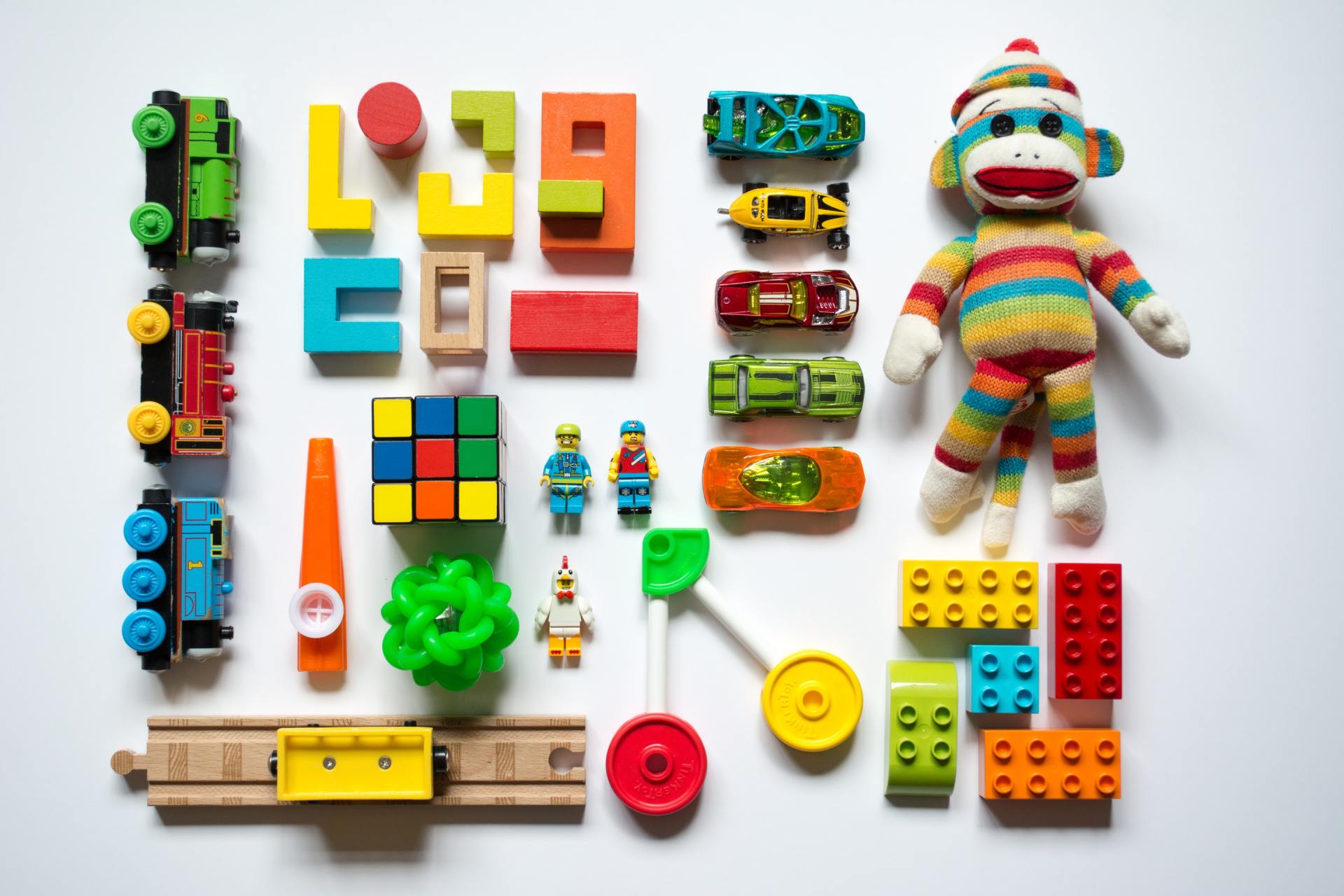Phony Toys, Real Injuries

Whether you celebrate Christmas, Hanukkah, or another such festive day, the holiday season is a time meant to be spent with family, spreading good cheer, stuffing one’s face on a delicious assortment of holiday grub, and exchanging presents so that we may see the joy and wonder of the season on the faces of our children as they open their gifts. Unfortunately though, with the exchanging of gifts comes the worry that these toys are, in fact, safe for our children to play with.
With the 2020 Holiday Season upon us, it is the perfect time to educate oneself on a troubling Christmas trend – the rise of counterfeit or “knock-off” children’s toys.
In an interview with New Jersey Radio 101.5, Port Director for the Port of New York and New Jersey with U.S. Customs and Border Protection, Adele Fasano, said that in fiscal year 2018 there had been more than 2,900 seizures of counterfeit merchandise, including knock-off children’s toys from overseas.
Director Fasano further explained that knowingly buying counterfeit merchandise is illegal in many states – a consequence for the buyer – but that it can also have unintended consequences for others. For one thing, Fasano informed, the proliferation of cheap knock-off merchandise can cannibalize the legitimate market, resulting in “the loss of American jobs, [and the] support of criminal activity.” Additionally though, Fasano warns that the purchase of such counterfeit merchandise, especially children’s toys, can pose, “significant risks to consumer health and safety.” Therefore, Fasano urged, that when doing your holiday shopping and when picking out toys to buy your children or the children of others, to “please make sure you purchase all your products from reputable sources.”
The Lento Law Group reminds that ensuring that the holiday toys you purchase for your children – or for other people’s children – are not counterfeit is particularly important so as to safeguard these children from the risk of potential injury due to cheaply made knock-off toys which may be prone to causing injuries such as lacerations, burns, bruising, choking hazards, or even death.
But even legitimate sources toys can pose their hazards as well.
World Against Toys Causing Harm – or W.A.T.C.H. – is a non-profit watch-dog organization dedicated to educating the public about dangerous children’s toys. Every year, W.A.T.C.H. releases an annual “10 Worst Toys” report, informing parents of what the organization considers to be that year’s top ten most dangerous children’s toys. Here is 2020’s “10 Worst Toys” according to this year’s W.A.T.C.H report and the reason why they consider the toy to be unsafe:
- “Calico Critters Nursery Friends” manufactured by Epoch Co., LTD
Reason: “Potential for Choking Injuries”
2. “Missile Launcher” by Toysmith
Reason: “Potential for Eye and Facial Injuries”
3. “Marvel Avengers Vibranium Power FX Claw” by Hasbro
Reason: “Potential for Eye and Facial Injuries”
4. “Gloria Owl” by Jellycat Ltd.
Reason: “Potential for Ingestion/Aspiration Injuries”
5. “WWE Jumbo Superstar Fists” by Jakks Pacific, Inc.
Reason: “Potential for Blunt Force and Impact Injuries”
6. “Scientific Explorer Sci-Fi Slime” by Alex Brands
Reason: “Potential for Chemical Related Injuries”
7. “The Original Boomerang Interactive Stunt UFO” by Amax Group
Reason: “Potential for Cutting and Propeller-Related Injuries”
8. “Boom City Racers Starter Pack” by Moose Toys, LLC
Reason: “Potential for Eye and Facial Injuries”
9. “My Sweet Love: Lots to Love Babies, Minis” by JC Toys Group, Inc.
Reason: “Potential for Ingestion and Choking Injuries”
10. “Star Wars: Mandalorian Darksaber” by Hasbro
Reason: “Potential for Blunt Force and Eye Injuries”
Note that the Lento Law Group does not specifically endorse W.A.T.C.H.’s findings with respect to these toys; rather, we are merely sharing their independent findings for your consideration as it is important to know which toys your child may receive this holiday season that may be potentially harmful. Ensuring your children’s toys are safe and not subject to a product recall is particularly important, as W.A.T.C.H. warns in its report, “One child is treated in U.S. emergency rooms every three minutes for a toy-related injury”.
Clearly, defective, counterfeit, or dangerous toys are the cause of thousands of injuries every year in the U.S., and product liability law provides the legal framework to hold manufacturers responsible for defective or dangerous toys.
As there is no federal product liability law, these types of product liability claims are typically based on state law and brought under theories of negligence, strict liability, or breach of warranty. Additionally, commercial statutes in each state, often modeled on the Uniform Commercial Code (“U.C.C.”), can contain warranty rules which may affect litigant’s rights with respect to product liability.
Types of Product Defects
In a products liability case, the plaintiff bears the burden of proof to establish that the injury-causing product was defective, and that the defect was such that the product was unreasonably dangerous as a result. Generally, there are three types of defects that might cause injury and potentially give rise to liability on the part of the manufacturer or the supplier:
Design Defects – These are defects present in a product from its inception, even before it is manufactured, in that something in the design of the product is inherently unsafe.
Manufacturing Defects – These defects occur during the course of a product's manufacture or assembly, often because the manufacture has deviated from the product’s design in some way, often unknowingly or unintentionally.
Marketing Defects – These defects are inadequacies, inaccuracies, or omissions in the way a product is marketed, such as improper labeling, insufficient instructions, or inadequate safety warnings.
Who is Responsible for Toy-Related Injuries?
A legal doctrine known as "res ipsa loquitur" – in Latin, meaning, “the thing speaks for itself,” shifts the burden of proof in unique negligence cases where a mechanism of injury was so unusual that the mere virtue of its occurrence is indicative of someone else’s negligence. Put another way, the injury would not have ordinarily occurred in the absence of the defendant’s negligence, provided the mechanism of injury was in the defendant’s exclusive control and that the actions of the person injured did not cause or contribute to the injury occurring.
The doctrine can be very helpful in products liability cases, because if it is successfully invoked, the plaintiff is no longer required to prove how the defendant was negligent; rather, the burden shifts to the defendant to prove that it was not negligent.
Another legal doctrine helpful to plaintiffs in product liability cases is that of strict liability, for if strict liability applies, the plaintiff does not need to prove that a manufacturer was negligent, but only that the product in question was defective. By eliminating from debate the issue of manufacturer fault, the concept of no-fault, or "strict" liability may allow a plaintiff to successfully recover in a case that could otherwise be difficult to prove.
If Your Child is Injured This Christmas
Try as we may, no one can prevent all accidents. Even the most diligent parent can inadvertently buy an unsafe toy for their, or someone else’s children. Often, product liability actions are very complex, and establishing legal fault can require the expertise of experienced professionals such as mechanical engineers to offer their opinions on the design of an arguably unsafe product. Additionally, as products liability is largely predicated upon state law which may differ from state-to-state, it is critical if you child is injured by a toy this holiday, that you contact a knowledgeable attorney to evaluate your claim. At Lento Law Group, we are committed to helping those who have sustained injuries through the carelessness of others, especially children.
If your child has suffered an injury this holiday caused by a potentially defective toy, call the Lento Law Group today! We will be happy to answer your questions and help you and your child get the recovery you deserve. As always, stay safe, and have a very Happy Holiday!
More News & Resources











